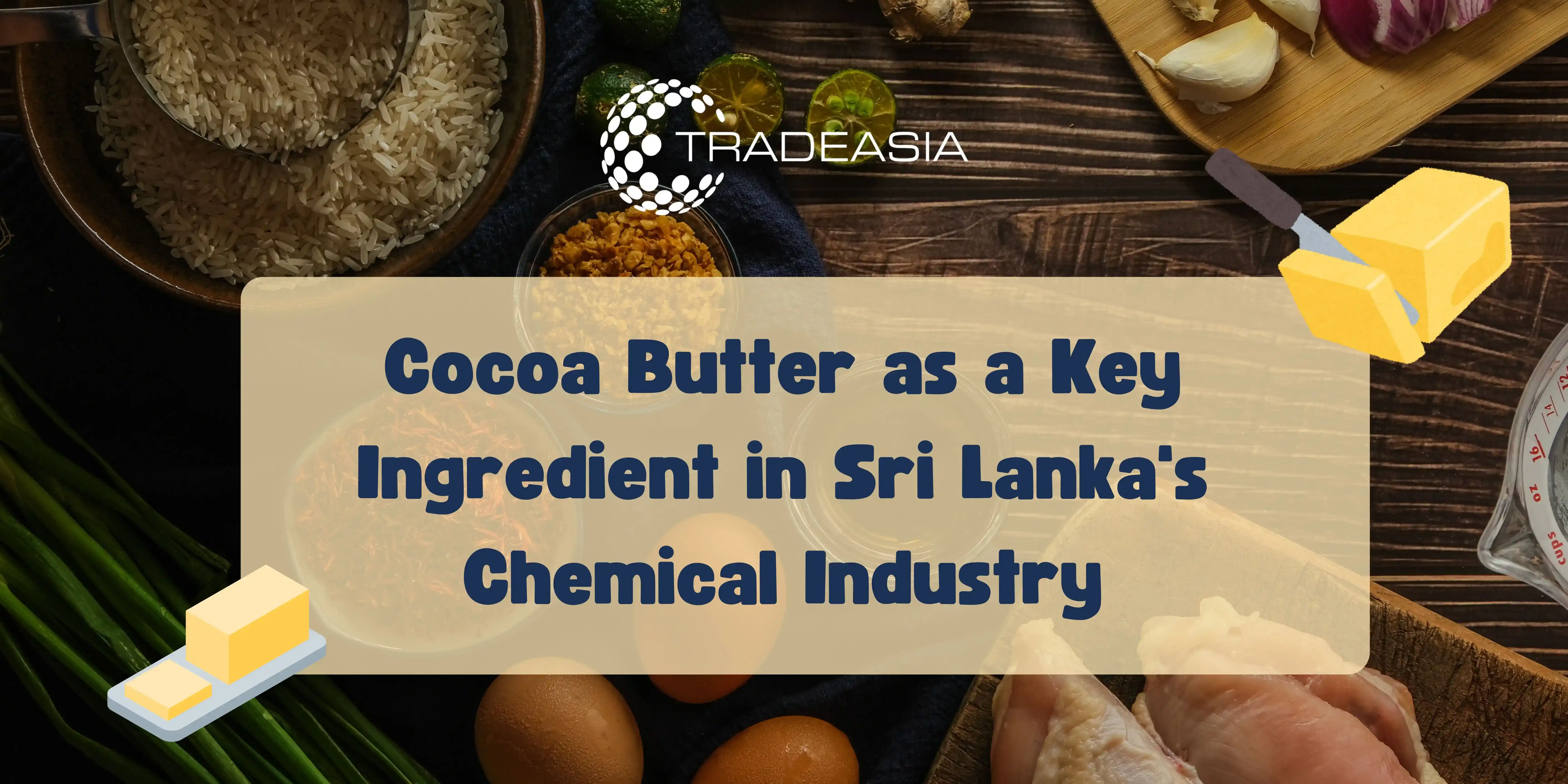Cocoa Butter as a Key Ingredient in Sri Lanka's Chemical Industry

Table of Content
- Properties and Characteristics Cocoa Butter
- Applications of Cocoa Butter in the Food Industry
- Applications in the Chemical Industry
- The Role of Cocoa Butter in Sustainable Production
- Challenges in Using Cocoa Butter
- Opportunities for Growth in Sri Lanka
- Cocoa Butter in Sri Lanka’s Chocolate Industry
- Conclusion
Cocoa butter, a natural fat extracted from cocoa beans, has long been celebrated for its versatility and applications. While it is widely recognized in the confectionery industry, its potential as a key ingredient in food production within the chemical industry is gaining attention. In Sri Lanka, cocoa butter plays a significant role in both the food and chemical sectors, contributing to innovative ingredient solutions and sustainable practices. This article delves into the properties of cocoa butter, its applications, and its growing importance in Sri Lanka's chemical and food industries.
Properties and Characteristics Cocoa Butter
- Chemical Composition
- Primary Components: Palmitic acid, stearic acid, and oleic acid
- Melting Point: 34-38°C, making it ideal for various formulations
- Stability: High oxidative stability ensures a long shelf life
- Unique Features
- Neutral flavor and aroma
- Smooth texture and easy blending properties
- Compatibility with various additives
Applications of Cocoa Butter in the Food Industry
- Confectionery
- Used in chocolate manufacturing for its creamy texture and melt-in-the-mouth quality.
- Acts as a carrier for flavors, ensuring uniform distribution.
- Bakery and Snacks
- Enhances texture and moisture retention in baked goods.
- Contributes to the stability of snack coatings.
- Dairy Alternatives
- A key fat source in plant-based dairy products like vegan butter and cheese.
- Nutraceuticals
- Used in energy bars and supplements as a natural and sustainable fat source.
Applications in the Chemical Industry
- Food Emulsifiers and Stabilizers
Cocoa butter is used in the production of emulsifiers, which stabilize food products like sauces, creams, and spreads.
- Cosmetic Applications with Food-Grade Standards
Due to its dual compatibility, cocoa butter finds applications in cosmetic products that meet edible-grade standards, offering safe and sustainable options.
- Sustainable Packaging Materials
As an eco-friendly ingredient, cocoa butter derivatives are used in creating biodegradable food packaging.
The Role of Cocoa Butter in Sustainable Production
- Reducing Carbon Footprint
- Sourced from cocoa, it supports agricultural sustainability.
- Promotes reduced reliance on synthetic fats in food production.
- Local Economic Impact in Sri Lanka
- Encourages cocoa farming, benefiting local farmers.
- Drives the growth of agro-industrial partnerships.
- Eco-Friendly Alternatives
Cocoa butter-based materials offer biodegradable solutions, reducing waste and environmental harm.
Challenges in Using Cocoa Butter
- Supply Chain Fluctuations
Dependency on cocoa-producing regions makes the supply susceptible to climate and market changes.
- Cost
Premium pricing compared to synthetic alternatives.
- Storage and Handling
Requires controlled conditions to prevent degradation and maintain quality.
Opportunities for Growth in Sri Lanka
- Expansion in Functional Foods
With the rise in health-conscious consumers, cocoa butter can be leveraged in functional foods and nutraceuticals.
- Research and Development
Investing in R&D can unlock new applications of cocoa butter in both food and non-food industries.
- Export Potential
Sri Lanka can position itself as a hub for cocoa butter-based ingredient manufacturing, tapping into global markets.
Cocoa Butter in Sri Lanka’s Chocolate Industry
A Sri Lankan chocolate manufacturer adopted locally sourced cocoa butter in its premium product line. The shift not only reduced costs but also supported local farmers and achieved sustainability goals. The product gained recognition in international markets for its ethical sourcing and high quality.
Conclusion
Cocoa butter stands out as a versatile and sustainable ingredient with immense potential in Sri Lanka's chemical and food industries. Its applications range from confectionery to cosmetics, driving innovation and sustainability in various sectors. By addressing challenges and exploring new opportunities, Sri Lanka can harness the full potential of cocoa butter, fostering industrial growth and contributing to a greener future. If you are interested in our products for your specific business needs, please do not hesitate to contact us.

Leave a Comment